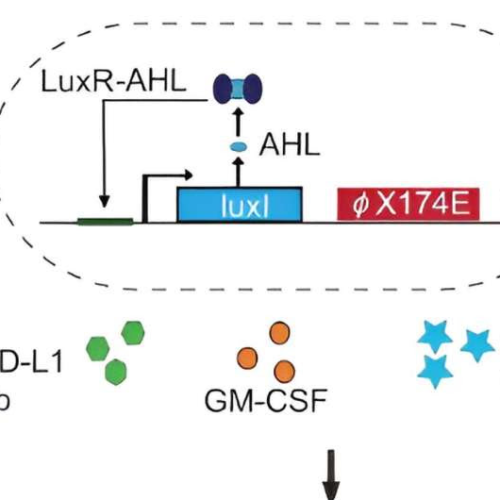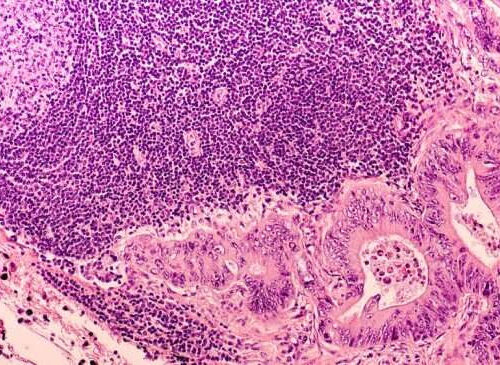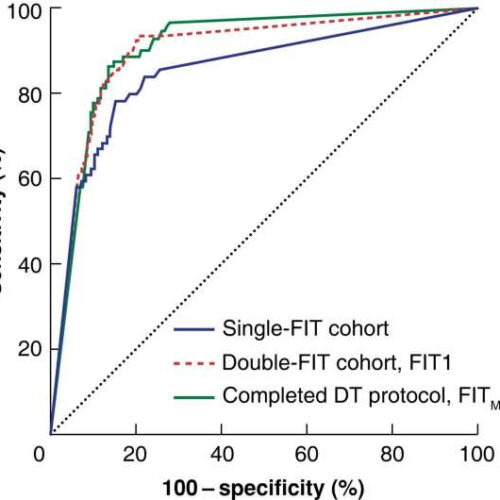by Justin Stebbing, The Conversation Credit: Pixabay/CC0 Public Domain A glass of milk a day could help keep bowel cancer away—or so finds a study by Oxford University and Cancer Research UK. The research suggests that increasing daily milk intake by as little as one glass could have a significant impact on lowering the likelihood of developing bowel...
Tag: <span>Bowel cancer</span>
Protein CD74 can predict immunotherapy response in bowel cancer, independent of subtype
by The Francis Crick Institute Credit: Pixabay/CC0 Public Domain Bowel cancer is the fourth most common cancer in the UK, and the second most common cause of cancer death. The disease falls into two types: one where proteins that repair errors in DNA are missing or deficient (the deficient subtype), and one where this machinery is...
Bowel cancer is on the rise in those under 50. Here’s what might explain the trend
by Sarah Allinson, The Conversation Credit: Pixabay/CC0 Public Domain Almost 2 million people are diagnosed with bowel cancer each year. Also known as colorectal cancer, it’s the third most common cancer worldwide. ADVERTISING While the majority of people diagnosed with bowel cancer are over 50, recent years has seen an alarming increase in the number of young people being diagnosed with...
Salmonella research unlocks the potential of bacteria to treat bowel cancer
by University of Glasgow TILs from mice treated with Salmonella are functionally defective. Credit: EMBO Molecular Medicine (2024). DOI: 10.1038/s44321-024-00159-2 Fighting bowel cancer with the bacteria Salmonella could be a step closer thanks to a new discovery by researchers at the University of Glasgow and the University of Birmingham. The new study, published in the journal EMBO Molecular Medicine, studied the...
Newly identified RNA molecules could help doctors predict if a patient’s bowel cancer will return
by University of Otago Overview of patient cohort for HCR-FISH. Credit: npj Precision Oncology (2024). DOI: 10.1038/s41698-024-00728-1. npj Precision Oncology (2024). DOI: 10.1038/s41698-024-00728-1 A University of Otago—Ōtākou Whakaihu Waka-led study could enable health professionals to separate colorectal cancer patients, who present at an early stage, into groups of those who will and won’t go on to develop metastasis and disease...
‘Cancer-cooling’ protein puts bowel cancer on ice
by Australian National University Credit: Pixabay/CC0 Public DomainA protein in the immune system can be manipulated to help overcome bowel cancer, according to new research from The Australian National University (ANU). The research is published in Science Advances. Bowel cancer claims more than 100 lives in Australia each week, yet around 90% of cases can be...
Detecting bowel cancer without a stool test
by South Australian Health and Medical Research Institute (SAHMRI) Schematic of orally-delivered EcN probiotic engineered to lyse and produce immunotherapeutic proteins in situ (top) and schematic of dosing regimen (bottom). Credit: Nature Communications (2024). DOI: 10.1038/s41467-024-44776-4An international team of researchers from Adelaide and the United States has opened the door to non-stool-based bowel cancer detection...
Researchers discover how bowel cancer ‘blinds’ the immune system
by University of Glasgow Microscopic image of an intestinal lymph node involved by metastatic colon cancer (colonic adenocarcinoma). Credit: Shutterstock A mystery which has stumped bowel cancer researchers for decades, has been solved by scientists at the Cancer Research UK Beatson Institute and University of Glasgow. Generations of doctors and researchers have struggled to understand why a bowel...
Double testing better at identifying bowel cancer
by University of Edinburgh Receiver operating characteristic (ROC) curve analysis for the detection of colorectal cancer between cohorts. Area under the curve 0.85 (95% c.i. 0.80 to 0.90) for the single-fecal immunochemical test (FIT) cohort, 0.90 (0.87 to 0.93) for the first FIT analyzed (FIT1) of patients who completed at least one test and investigation in...
Old drugs offer new ways of treating bowel cancer
by University of Auckland Credit: CC0 Public Domain Old medicines, combined in new ways, are showing promise for treating bowel cancer, a group of University of Auckland researchers has found. “While there have been advances in treatments for this disease in recent years, the development of new medicines is expensive and time-consuming,” lead researcher Professor Peter Shepherd...





